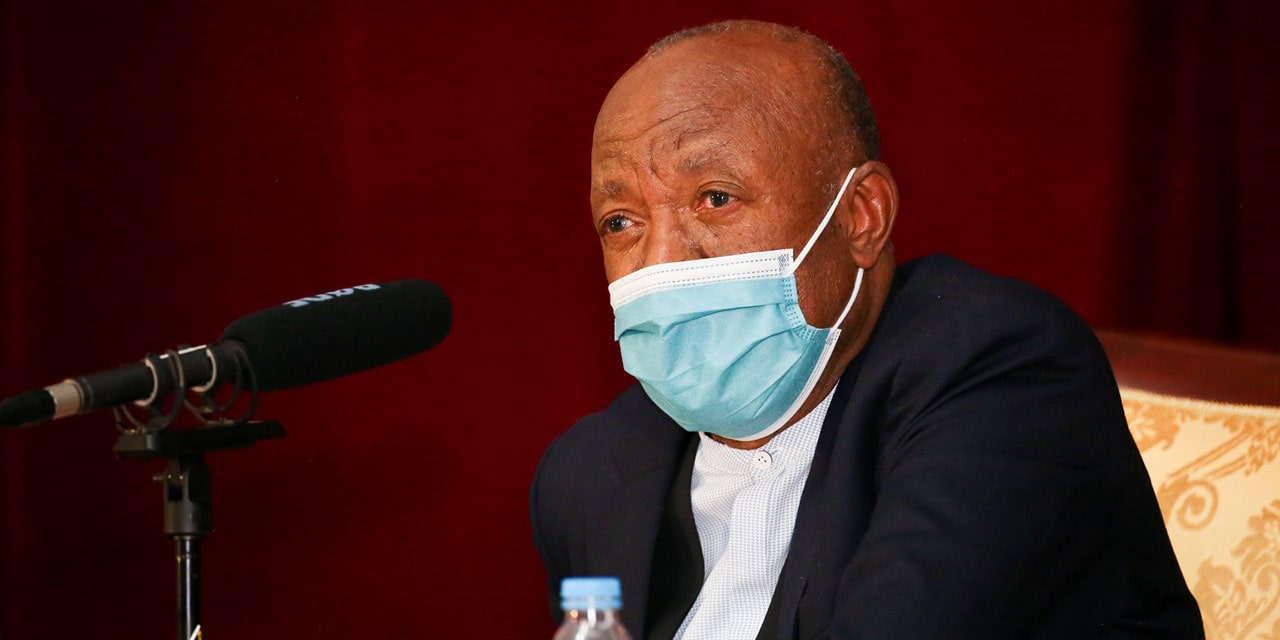Staff Writer
Vice President, Nangolo Mbumba, this morning officially in a live broadcast by the Namibian Broadcasting Corporation (NBC) television and its various indigenous languages radio channels, announced the Joint Declaration between the two nations relating to Genocide, Apology and Reparations.
This is obviously in an attempt to give credibility to the purported deal which since news of its hatching has been receiving serious challenges. The Vice President, flanked by Deputy Prime Minister and Minister for International Relations and Cooperation, Netumbo Nandi-Ndaitwa, and Special Envoy on the negotiations, Dr Zed Ngavirue, tried to deflect a lot of queries arising from the public outcry from the affected communities that has surfaced since news of the agreement came out.
The final lap of the negotiations, which have from the beginning been handicapped by a substantial section of the affected communities not partaking in them, took another blow when Chiefs Manasse Zeraeua and Tjinaani Maharero, rejected the agreement. This has left it with a bare minimum of support from the affected communities given the fact that a substantial section of the Ovaherero, Ovambanderu and Nama have since inception in 2015 not been part of it. Thus necessitating since heavy lobbying by the Government to master support for the agreement even among traditional leaders not officially recognised.
The outcry has not been confined to Namibia with descendants of the victims of genocide in neighbouring Botswana and South Africa mobilising to launch demands of their own. International bodies like European Centre for Constitutional and Human Rights characterising the agreement as a “lost opportunity”.
It has been a hectic week of to and fro lobbying shuttles by the Government, engaging traditional leaders from the affected communities. Even traditional leaders who have not been part of the negotiations, and some not gazetted with them welcome, albeit temporary guests of honours at the Government’s consultations and briefing sessions. Some of these sessions were done by proxy by some high-ranking Government officials, including some governors, presidential spokesperson, Dr Alfredo Hengari, and Namibia’s Special Envoy on the negotiations, Dr Zed Ngavirue. The shuttle lobbying, the Windhoek Observer has reliably been informed, even entailed some traditional leaders being ferried in the night from their rural abodes into the capital and back.
Chief Manasse Zeraeua of the Zeraeua Tradtiitonal Authority, and Tjinaani Maharero, of the Maharero Traditional Authority, arguably two of among the most trusted ally traditional leaders of the Government “we vehemently and unequivocally reject and condemn the proposed insulting amount”.
Both Zeraeua and Maharero are part of the Ovaherero-Ovambanderu and Nama Council for Dialogue (ONCD) 1904-1908, an alliance of recognised and unrecognised Ovaherero, Ovambanderu and Nama traditional leaders who have been behind the Government in the negotiations. Thereby rendering the negotiations much-needed, if not critical legitimacy. But at this juncture there is discord within the alliance with other traditional leaders, led notably by the Ovambanderu Traditional Authority of Kilus Nguvauva, standing squarely behind the Government in endorsing the agreement. Obviously the last once of legitimacy of the Government in this negotiations, now in its final if not dying throes, with its endorsement by the two governments, before the next process, which is the Namibian Parliament from where it originated, is in balance. Hence the balancing act the Government has been lately engaging in through its nocturnal shuttles.
Descendants of the survivors of genocide in Botswana and South African Diaspora, have been rudely awakened by their exclusion or seeming lack of accommodation in the pending agreement, that all along they have just been stepchildren of the Namibian Genocide, Apology and Reparation movement. In this regard these descendants are afoot with own demands that the Windhoek Observer has been reliably informed about. No to mention the recent pronouncements by the former President of Botswana, Seretse Khama Ian Khama, who expressed the wish that genocide descendants in Botswana would benefit from the Agreement.
“The ‘reconciliation agreement’-A lost opportunity”, The European headlines its comments on the matter.
The Vice President and his team including the Deputy Prime Minister and Minister for International Relations and Cooperation, have spoken but has by no means not put the matter to bed. Shown by the VP’s own revelation that the shuttling was to continue this afternoon, evening, and perhaps in eternity. Given the seeming lack of the consensus on the matter, would a referendum be the answer? Albeit the VP the process did not come via a referendum, thus it cannot take that route.




